The explosion of social media has transformed the way people connect, communicate, and gather information. With these changes come growing concerns about the influence social media exerts on mental health and overall wellbeing. Researchers and medical professionals are increasingly exploring how platforms shape emotional states, daily habits, and even the development of psychological distress. As online engagement becomes ever more entwined with daily life, understanding its complex role in wellbeing—especially for young people—has never been more important.
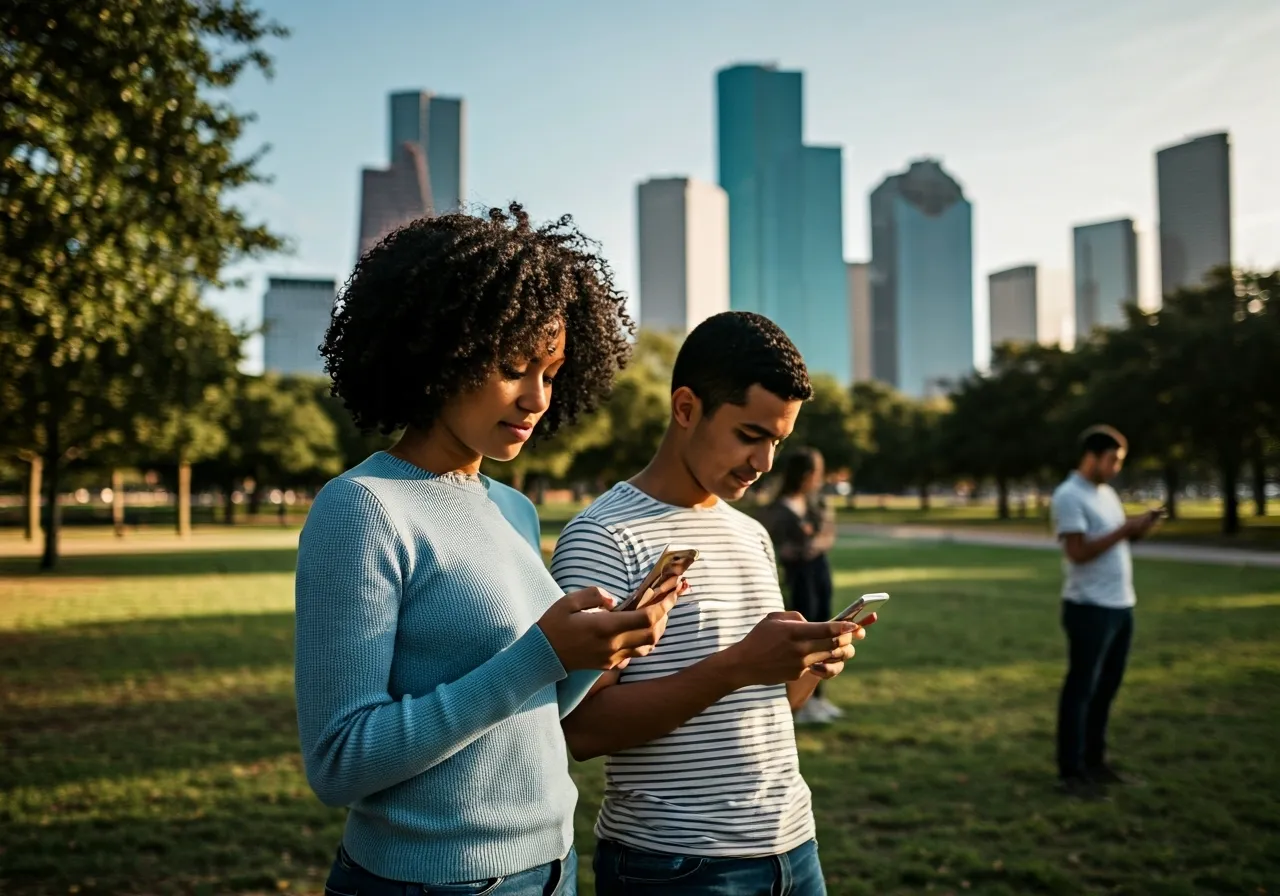
In Houston, TX, and across the United States, social media use has reached record levels. Nearly every teenager and a growing number of adults engage with popular social media platforms daily, making digital connectivity a defining feature of contemporary life. The Pew Research Center reports that up to 95% of teens use social media, and over a third describe themselves as being online “almost constantly.”
The prevalence of these platforms is not just a trend but a significant cultural shift. Whether for entertainment, networking, or seeking support, people now rely heavily on digital spaces for communication and information. This widespread adoption sets the stage for both opportunities and risks that will be explored further.
When you look at the current landscape, several social media platforms stand out for their popularity among different age groups. YouTube, TikTok, Snapchat, and Instagram top the list for teens, while platforms like Facebook see higher usage among adults. This diversity in social media use means that people of all ages have access to a range of digital communities and information sources.
User demographics show clear patterns. For example, more females than males are active on platforms like Facebook and LinkedIn, while Snapchat draws a predominantly male audience. These distinctions can influence the type of content shared and the impact on mental health outcomes, as recent systematic reviews suggest user experience varies greatly depending on platform and demographic factors.

The latest research, including systematic reviews, highlights that while increased social media use may correlate with mental health issues for some users, the relationship is not universal; individual experiences and patterns of use play significant roles.
Daily social media consumption has become routine for most Americans, especially young people. Teens report using social media platforms on a regular basis, with many spending more than three hours per day online. This level of screen time often replaces other activities, such as physical exercise, face-to-face social interaction, and even sleep.
Regular social media use influences mental health in multiple ways. On the positive side, it enables ongoing connections with friends and provides a sense of community. Yet, excessive or unfocused use can lead to negative effects, including increased psychological distress, feelings of exclusion, and disrupted sleep. Studies show that the risks rise with both the amount of time spent online and the nature of content consumed.
By understanding these trends, you can become more aware of potential risks and benefits, helping you make healthier choices about your own social media habits.
Mobile devices have become the primary gateway for accessing social media, especially among teenagers and young adults. Smartphones and tablets allow users to be connected anytime and anywhere, further blurring the boundaries between the online and real worlds. The widespread use of digital devices amplifies social connectivity but also introduces new challenges.
With constant access comes the temptation to check platforms frequently, sometimes late at night or during important daily routines. This can disrupt sleep patterns and have downstream effects on mood, attention, and mental health. Research finds a strong association between bedtime device use and poor sleep quality, which in turn is linked to higher risks for anxiety and depressive symptoms.
Despite these challenges, mobile devices also foster opportunities for positive interaction, immediate support, and the sharing of helpful resources. The key is developing a balanced approach to digital engagement.
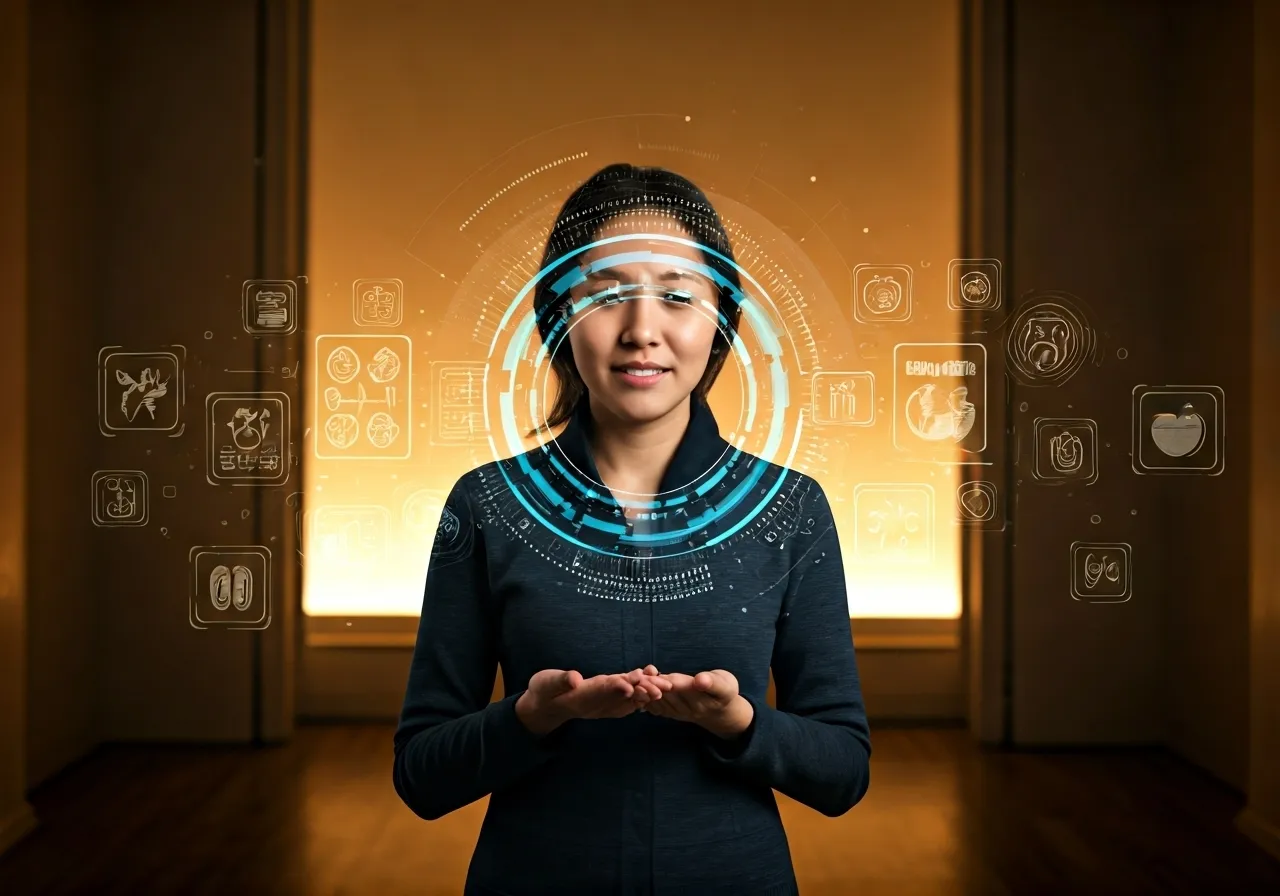
Wellbeing in today’s digital age is about more than just absence of illness—it means thriving emotionally, physically, and socially, even when much of life happens online. Mental health and overall wellbeing now involve managing how digital devices impact daily life, relationships, and feelings of self-worth.
Digital wellbeing refers to maintaining a healthy relationship with technology, where social media supports rather than undermines your sense of fulfillment and personal connections. Understanding these dimensions is essential for protecting both your mental health and your quality of life.
Emotional wellbeing in the digital world means understanding how social media impacts your mood, stress levels, and outlook on life. Being exposed to supportive messages and positive interactions can lift your spirits and foster a sense of belonging.
On the psychological front, too much screen time or negative experiences—such as online conflict or exposure to distressing content—can trigger psychological distress. As social creatures, humans need real-life interaction, and an overreliance on digital communication may reduce opportunities for meaningful face-to-face connections, which are vital for mental health.
To manage your social media usage for better mental well-being, consider setting limits on screen time, curating your feeds for positivity, and prioritizing offline social interaction. Open conversations with trusted friends or family members about your online experiences can also make a significant difference.
Digital wellbeing is the practice of using technology in ways that support—not hinder—your mental and emotional health. This means being aware of the time spent on digital devices and making conscious decisions about which online interactions enhance your life.
Online wellbeing includes setting boundaries for when and how you use social platforms. This could involve creating tech-free zones in your home, disabling notifications during certain hours, or regularly evaluating the content you see. By taking control of your digital environment, you can reduce exposure to harmful material and encourage more positive, uplifting experiences.
Experts recommend strategies like digital detoxes, regular breaks from screens, and engaging in hobbies that don’t require devices. These approaches help you reclaim your focus, improve your sleep, and boost your mood, supporting a healthier digital lifestyle.
Wellbeing in the digital era can be measured through both subjective and objective indicators. Metrics might include self-reported satisfaction with life, quality of sleep, frequency of social interactions, and emotional stability. Mental health indicators often focus on symptoms of depression, anxiety, and psychological distress.
Recent studies show that while social media use is generally associated with an increased risk of depression and anxiety symptoms, not every user will experience these effects. The relationship between online activity and mental health is complicated by individual factors, such as personality, resilience, and the type of interactions people have online.
Longitudinal studies and cross-sectional studies suggest that it’s not just the quantity, but also the quality and nature of social media use that matter most for mental health outcomes. Positive engagement and supportive communities can offer protective benefits, whereas exposure to harmful or negative content heightens risk, indicating the value of a longitudinal study in this context.
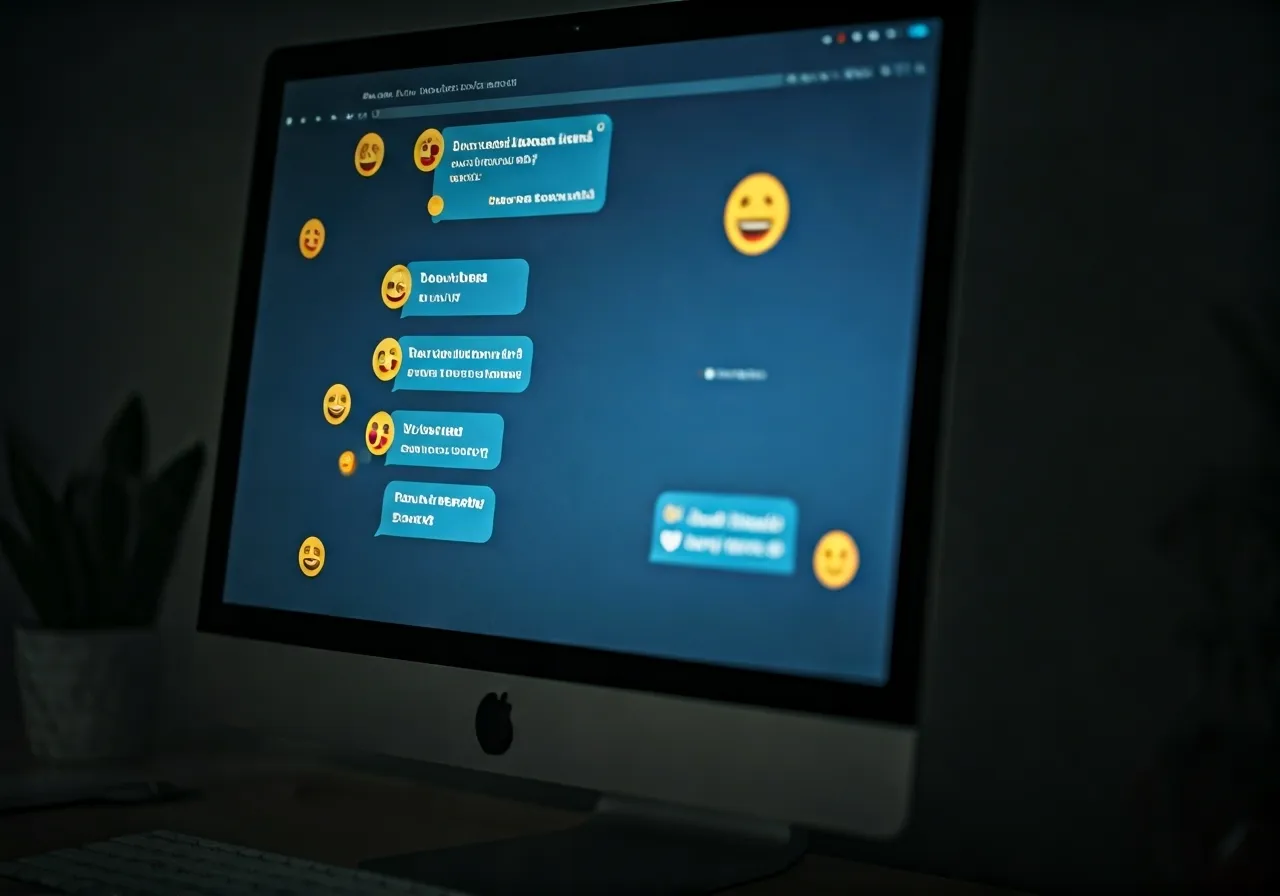
While concerns about negative effects are real, it’s important to recognize the many benefits of social media for mental health. For many people, social platforms offer vital social support, a space for self-expression, and opportunities to connect with others who share similar experiences or challenges.
Social media can also improve access to mental health care information and advocacy, making it easier for individuals to share personal experiences and find resources and support groups. These benefits are especially meaningful for those who may feel isolated offline or face barriers to in-person care.
Peer support communities online are one of the most practical benefits of social media. Social networking sites create safe spaces where people facing similar challenges can share stories, offer encouragement, and find understanding—often anonymously and without fear of stigma.
These communities play a powerful role in reducing feelings of loneliness and isolation. For people dealing with mental health issues, knowing that others have similar struggles can be both comforting and empowering. Research supports the idea that online social support can enhance wellbeing, though in-person support is often even more protective.
Social media has transformed how people raise awareness and advocate for mental health. Campaigns like #BellLetsTalk or Mental Health Awareness Month leverage the global reach of platforms to reduce stigma and promote open conversations. The ability to quickly spread information has enabled new forms of advocacy and health promotion.
Individuals, organizations, and influencers use social media to share educational content, challenge stereotypes, and encourage those struggling to seek help. This constant flow of information makes support and resources more accessible than ever before.
Scientific studies suggest that participating in mental health advocacy online can improve self-esteem and a sense of purpose, especially for young people. By feeling connected to a larger movement, users gain motivation to care for themselves and support others.
Access to helpful resources is another major benefit of social media. Platforms connect users to information about mental health issues, crisis hotlines, therapy options, and community services. This immediate access is particularly valuable for those in underserved or rural areas.
Social media also lowers barriers to learning about symptoms, treatment, and prevention strategies. Many organizations and professionals share evidence-based content, empowering individuals to make informed decisions about their mental health care.
Studies have found that users who actively seek out mental health resources on social media tend to report greater knowledge and empowerment. This effect can be especially significant for teens and young adults, who might otherwise hesitate to reach out for support offline.
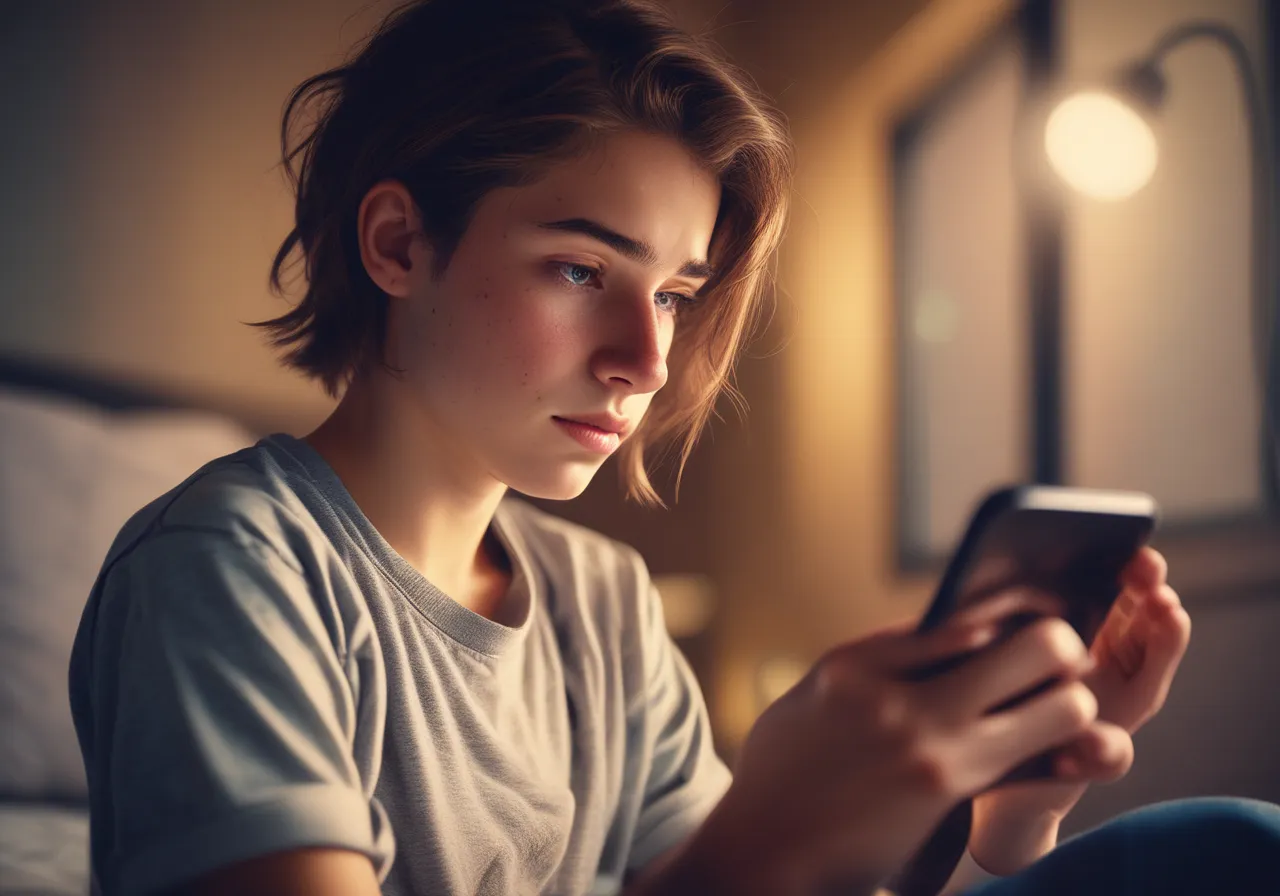
Despite the clear benefits, social media use can pose serious risks to mental health. The negative effects are particularly pronounced for teenagers and children, who may be exposed to cyberbullying, unrealistic social comparisons, and disturbing content.
Frequent or excessive use increases the likelihood of developing mental health problems, such as depression, anxiety, and low self-esteem. Understanding these negative impacts is crucial for anyone seeking to balance their online presence with real-world wellbeing.
Social comparison is a common—and sometimes harmful—consequence of time spent on social networking sites. When users constantly view curated images of other people’s “perfect” lives, it’s easy to feel inferior or dissatisfied with your own achievements or appearance.
This pattern can erode self-esteem, especially among teens and young adults. Negative experiences, such as not receiving enough likes or being left out of group chats, amplify feelings of exclusion and inadequacy. Research has linked high levels of social comparison on platforms like Instagram and Facebook to increased depressive symptoms and body image concerns.
Recognizing when social media use is triggering negative emotions is essential. Building awareness about these patterns helps you take steps to protect your self-worth and seek validation from healthier, offline sources.
The pervasive nature of social media and the increasing use of social media often amplifies the fear of missing out (FOMO), particularly among young adults. This phenomenon can significantly exacerbate anxiety symptoms and feelings of sadness, leading to poor mental health outcomes. Studies show that excessive social media use correlates with increased screen time and social isolation, which are significant risk factors for mental health issues. Furthermore, the continuous comparison with seemingly perfect lives on social networking sites can create psychological distress, underscoring the negative impact of FOMO on overall well-being and the importance of mindful media use.
Cyberbullying and online harassment are significant threats to mental health on social media platforms. Unlike traditional bullying, these behaviors can follow victims everywhere, making it hard to find respite or support. The anonymity and reach of the internet amplify cruelty and increase the potential for harm.
Victims of online harassment are at greater risk for anxiety, depression, and even suicidal thoughts. Adolescents, in particular, may struggle to cope with the emotional toll, especially when the abuse occurs in public forums or group chats.
Parents, schools, and social media companies play critical roles in addressing cyberbullying. Providing education about privacy settings, reporting tools, and supportive interventions can help reduce the long-term psychological consequences of digital harassment.
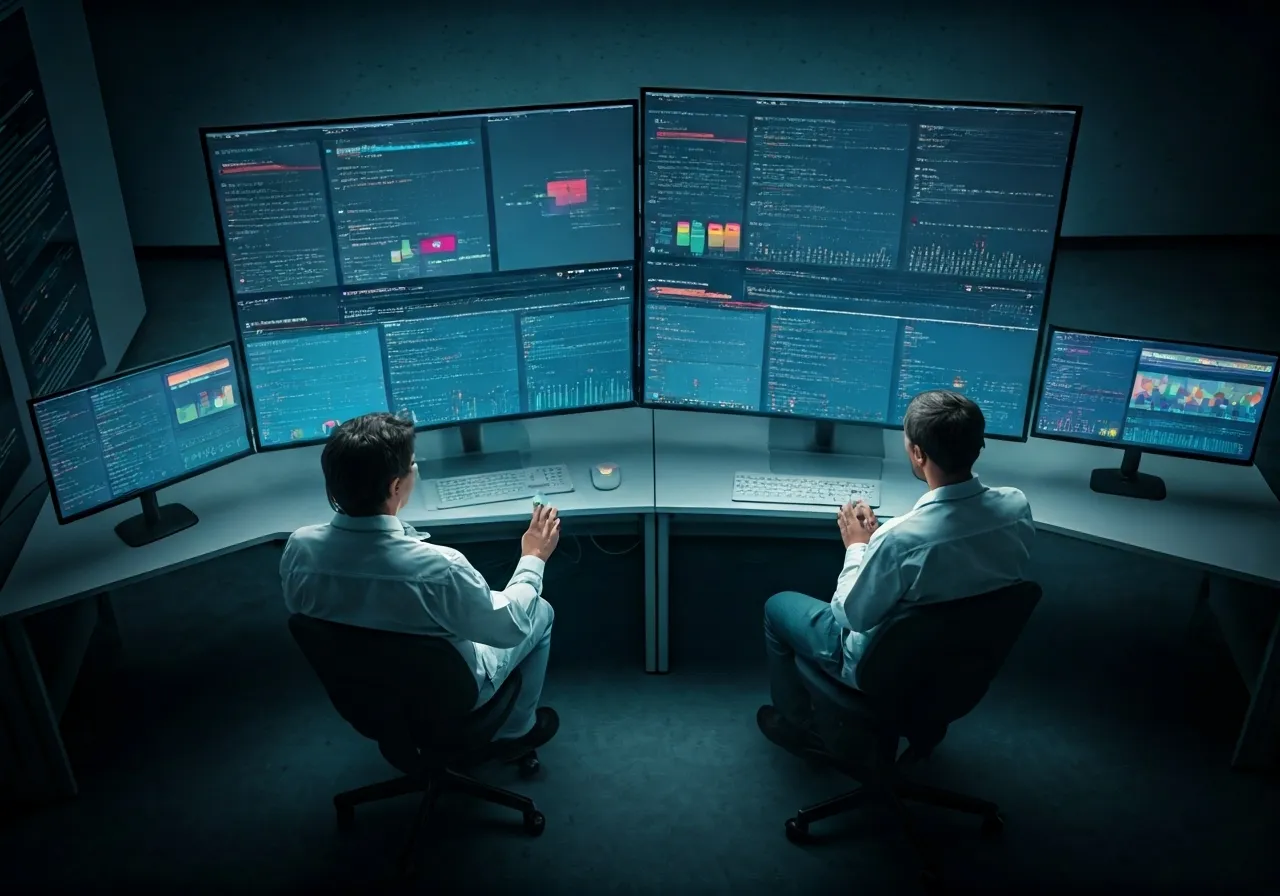
A growing body of research is providing new insights into the influence of social media on mental health. Numerous studies—including systematic reviews and longitudinal research—have examined links between digital media use and symptoms of depression, anxiety, and psychological distress.
While findings vary, the consensus is that there is a modest but statistically significant association between higher social media usage and increased mental health concerns, as various studies suggest. Ongoing scientific exploration aims to clarify the mechanisms involved and identify which groups are most at risk.
Multiple mental health studies demonstrate a correlation between frequent social media use and depressive symptoms, especially in young people. For example, longitudinal research has found that teens who engage in less physical activity and spend more than three hours per day online are at double the risk for negative mental health outcomes compared to their peers.
The mechanisms behind this link include social comparison, exposure to negative or harmful content, and displacement of healthy activities like sleep or physical exercise. Symptoms of depression can include persistent sadness, withdrawal from friends and family, and a loss of motivation.
Although not everyone who uses social media will become depressed, these studies highlight the importance of monitoring your digital habits and seeking support if you notice changes in your mood or daily functioning.
Social networking can contribute to anxiety in various ways. For some, the pressure to maintain a certain online image or respond quickly to messages creates constant stress. Others experience anxiety from cyberbullying or the ever-present fear of missing out.
Anxiety symptoms linked to social media include restlessness, difficulty sleeping, and excessive worry about others’ opinions. Learn the symptoms of anxiety as the rapid pace and 24/7 nature of digital communication means there is often little time for relaxation or mental recovery.
Research confirms that social media can contribute to the development or worsening of anxiety disorders, particularly in adolescents. Building digital literacy and adopting healthy boundaries are critical strategies for reducing this risk.
Despite progress, significant gaps and controversies remain in the research. Most studies rely on self-reported data, which can be inaccurate or biased. Causality is difficult to establish—does social media cause mental health problems, or do people who are struggling turn to social platforms more frequently?
There are other important considerations:
More nuanced, long-term studies are needed to inform effective interventions and policies.
Social media addiction is a growing concern, with excessive use disrupting important aspects of daily life and contributing to mental illness. Characterized by compulsive checking, withdrawal symptoms, and loss of control, addiction can affect people of any age but is especially problematic for teens and young adults.
Recognizing the signs early is key to preventing more serious mental health issues. Next, we’ll discuss the behavioral red flags and the tangible impacts on productivity and daily functioning.
Spotting social media addiction begins with understanding behavioral red flags. People may spend excessive amounts of time online, sacrificing sleep, schoolwork, or work responsibilities to keep up with their feeds. Emotional dependence on digital validation—such as needing likes or comments to feel good—can signal deeper problems.
Withdrawal symptoms are another warning sign. If you feel anxious, irritable, or restless when unable to access social media, addiction may be developing. Research identifies several hallmark symptoms:
Early intervention is crucial for restoring balance and reducing negative impacts.
Social media addiction can significantly disrupt daily life. When excessive time is spent scrolling or posting, it often crowds out essential activities like work, studying, or family time. Productivity drops and important tasks may be neglected, leading to mounting stress and frustration.
People may find themselves unable to focus without checking for updates, leading to fragmented attention and reduced performance. This cycle of distraction can undermine both academic and professional achievements, as well as personal relationships.
Learning to recognize these patterns—and understanding the risks—empowers you to make changes before the consequences escalate. Setting structured routines and offline priorities can support a healthier, more productive lifestyle.
In Houston, trends mirror national patterns: teens and young adults are among the most active social media users, with platforms like TikTok, YouTube, and Instagram dominating. Local public health experts express concern about rising rates of anxiety, depression, and sleep disruption linked to excessive digital engagement.
Particularly troubling is the impact on adolescents, who face heightened risks for cyberbullying, exposure to harmful content, and the development of unhealthy habits during formative years. Schools and community organizations in Houston are responding with digital literacy programs, support groups, and awareness campaigns.
Community-based efforts highlight the importance of early intervention and ongoing parental involvement. By understanding regional trends, families can better support young people in making safer, healthier choices online.
Children and teenagers are uniquely vulnerable to social media’s risks due to their stage of development and limited life experience. The teenage years are marked by identity formation, increased sensitivity to peer influence, and greater risk-taking behavior, all of which can be amplified by constant online exposure.
Risk factors for mental health issues include early access to harmful content, cyberbullying, and pressure to conform. It’s crucial to recognize these vulnerabilities and take proactive steps to safeguard young users.
Children and teens can easily stumble upon harmful content—ranging from violence to substance use and self-harm—on social media platforms. Algorithms may even amplify exposure by promoting similar material based on previous searches. This relentless stream of negative content can shape perceptions and behaviors, especially in impressionable users.
Peer pressure is another influential risk. Social media heightens the desire to “fit in,” pushing teens to take part in trends or risky challenges that can have real-world consequences. The fear of being left out or ridiculed further complicates decision-making.
These exposures can increase the risk for anxiety, depression, and potentially dangerous behaviors. Open family conversations and digital literacy education are powerful tools for mitigating these risks.
Social media interactions play a significant role in the emotional development of teenagers. Online friendships offer opportunities for connection and support, but they can also become sources of drama, exclusion, or betrayal. Navigating these digital relationships can be challenging for users still developing emotional regulation skills.
Research suggests that teens who rely heavily on online validation may struggle with self-esteem and resilience. Negative experiences—such as being unfriended or cyberbullied—can have an outsized impact during sensitive developmental stages.
Balancing online and offline friendships is key. Encouraging real-world social interaction helps build confidence and social skills, reducing reliance on digital approval for emotional stability.
The rise of sexting and privacy concerns adds new layers of risk for children and teenagers online. Sharing personal images or information—even with trusted friends—can quickly spiral out of control, leading to serious consequences.
Teaching young people about privacy settings, digital consent, and the permanence of online actions is essential for reducing long-term harm.
Young adults and older adults experience social media’s effects differently due to variations in life stage, digital literacy, and social needs. For young adults, social validation and identity exploration are central, making them more susceptible to body image concerns or peer influence.
Older adults, on the other hand, may use social media to combat loneliness or maintain cognitive health, but may face other challenges such as misinformation or reduced in-person interaction. Each group requires tailored health promotion strategies.
Social validation—the need for approval and recognition from others—is a powerful motivator for young adults’ social media use. Platforms encourage users to seek likes, comments, and followers, which can shape self-worth and daily behavior.
Body image is another significant concern. Young adults are bombarded with images of “ideal” appearances, leading to unhealthy comparisons and, in some cases, disordered eating or body dissatisfaction. Studies find that frequent exposure to appearance-focused content is linked to greater risk of anxiety and depression in this age group.
Compared to older adults, young adults are more likely to internalize social media standards and experience mental health challenges tied to validation and self-image.
Older adults often turn to social media for maintaining contact with distant friends and family, providing a buffer against loneliness. Engaging online can promote cognitive health by offering mental stimulation and opportunities to learn new skills.
However, overreliance on digital connections may also decrease face-to-face interaction, which is vital for emotional wellbeing. Additionally, older users may be more susceptible to misinformation or scams, posing unique risks.
Unlike younger users, older adults tend to use social media less for validation and more for maintaining relationships. Recognizing these differences helps families and professionals tailor support and education for each generation’s needs.
Intergenerational online interaction can enrich social networking for all age groups. Families now use group chats, shared content, and video calls to stay connected, bridging geographical and generational divides.
However, gaps in digital literacy or differing attitudes toward privacy and content can cause misunderstandings. Older adults might struggle to navigate new technology, while younger users may not recognize the risks of oversharing or the permanence of digital footprints.
Promoting digital literacy and respectful online communication across generations strengthens relationships and minimizes conflict, fostering a healthier, more inclusive digital environment.

Adopting healthy strategies for social media use is crucial for safeguarding mental health. Simple habits—such as setting time limits, curating positive content, and prioritizing offline relationships—can reduce risks and boost emotional wellbeing.
Mental health care now includes guidance on digital habits, emphasizing balance, mindfulness, and open conversation. The next sections provide practical tips and expert recommendations that you can use to create a safer, more fulfilling online experience.
Setting clear boundaries is the foundation of healthy social media use. Establish specific times for checking your accounts and stick to daily screen time limits. This structure helps you regain control over your online habits and minimizes negative effects on mood and productivity.
Experts suggest implementing these key practices:
By reinforcing boundaries, you support healthier routines and reduce the temptation to overuse digital platforms.
Mindful engagement means being fully aware of how and why you use social media. Before logging on, ask yourself what you hope to gain—social connection, information, or entertainment? This awareness allows you to make intentional choices and avoid mindless scrolling.
Focus on quality over quantity by engaging with content that brings joy or inspiration. When negative emotions arise, pause and consider whether it’s time for a break or to unfollow certain accounts. Experts, including Dr. Linda Mayes, recommend “conversations at home about how social media is working for you” to foster mindfulness and openness.
Practicing gratitude, limiting exposure to toxic content, and being intentional about who you interact with can all boost positivity and lessen the risk of psychological distress.
Curating your social media feeds is a proactive way to enhance positivity and wellbeing. By consciously choosing who and what you follow, you can create a digital environment that supports your values and mental health.
Consider these strategies:
Regularly reassessing your digital environment helps ensure that social media serves as a source of encouragement, not stress. The benefits of social media are maximized when you surround yourself with positive, authentic connections and content.
The interplay between social media and mental health is complex and ever-evolving. Frequent use of a large number of social media platforms can lead to increased risks of mental health problems, as evidenced by numerous studies linking screen time to depressive symptoms and anxiety symptoms. However, social networking also offers potential benefits, such as social support and connections. Understanding the impact of social media on young adults, especially during transformative years, highlights the need for mindful engagement with these platforms. Ultimately, balancing real-world interactions with digital connections fosters healthier mental wellbeing.
Riaz Counseling accepts a variety of insurance providers in Texas, ensuring that individuals seeking mental health support have access to necessary services. Some of the accepted insurers include BCBSTX, Optum, Magellan, Aetna, Cigna, and several others to accommodate diverse needs.
Consider setting limits on your social media usage, curating your feed to include positive influences, and engaging in offline activities. Reflect on your emotional responses after using social platforms and seek professional help if needed for further guidance on managing mental health challenges.
Parents in Houston can guide responsible social media use by establishing open communication, setting clear boundaries, encouraging critical thinking about online content, and promoting healthy online habits. Additionally, they can model positive behavior and engage with their children’s online activities to foster a safe environment.
Yes, research indicates that social media can foster connections among human beings, provide emotional support, and promote community engagement. These interactions may enhance feelings of belonging and reduce loneliness, contributing positively to mental health when used mindfully and in moderation.
If you feel that you or someone you know, may benefit from therapy, please reach out to our office for a FREE 15 minute consultation: LINK
Stay informed about the latest research in psychology.
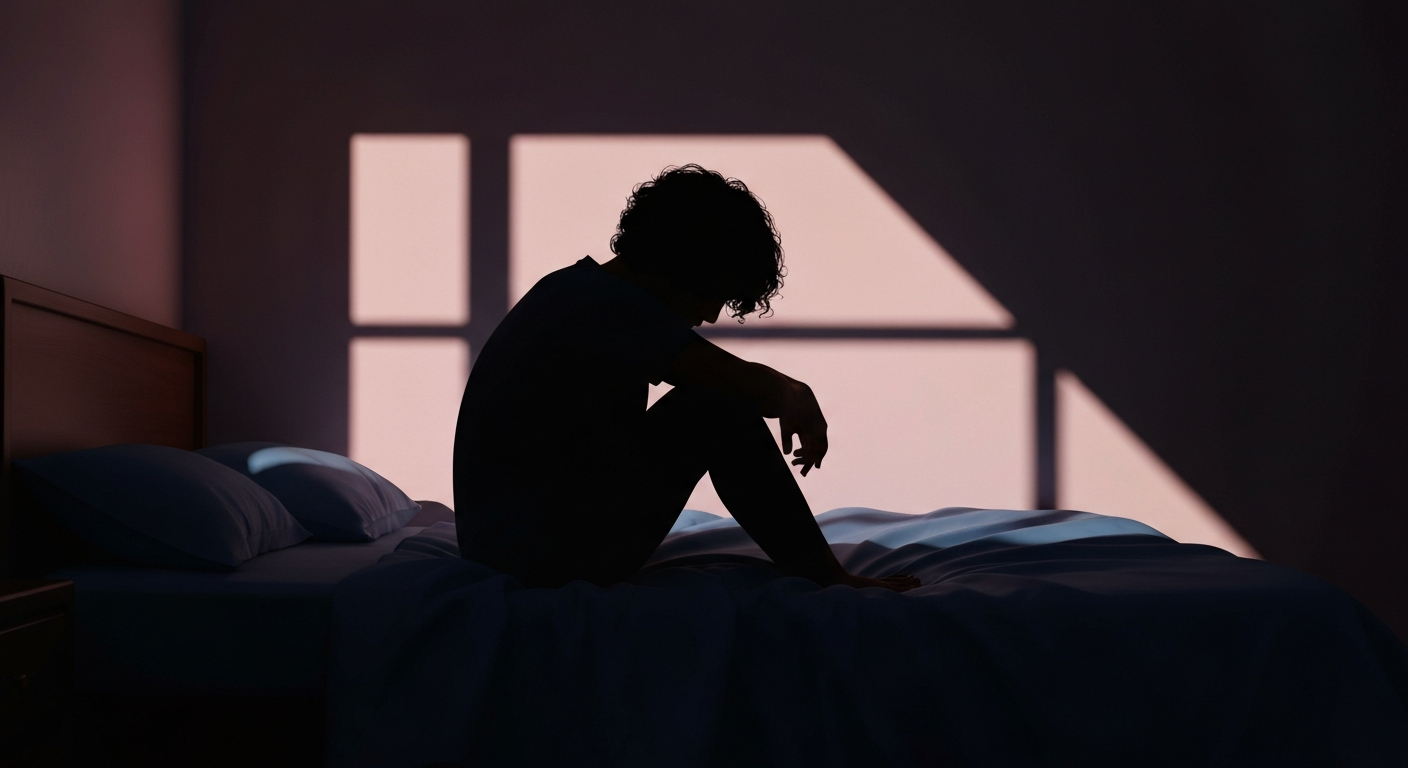
Feeling lonely in a relationship? Learn the causes, signs, and how therapy can help you reconnect.
.png)
Learn how to cope with loneliness while single in Houston and build confidence and fulfillment.

Loneliness counseling in Houston: causes, therapy options, costs, and how to find the right support.